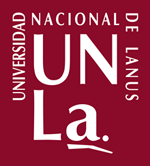Entrepreneurship and public policies. An introduction to the literature
Abstract
In this paper we study entrepreneurship and its relation
to public policy through an introductory review of the
literature on the main concepts of entrepreneurship and
the different conceptions of the entrepreneur. We conclude
the paper stating that the channels that determine entrepreneurship
and its causal relationship with economic de-
velopment are extensive, generating intense debate about
the effectiveness and appropriate practices of public policies
therein. In this regard we advocate for the promotion
of public policies involving sustainable efforts in both
public and private sectors to foster strong entrepreneurship
processes.






